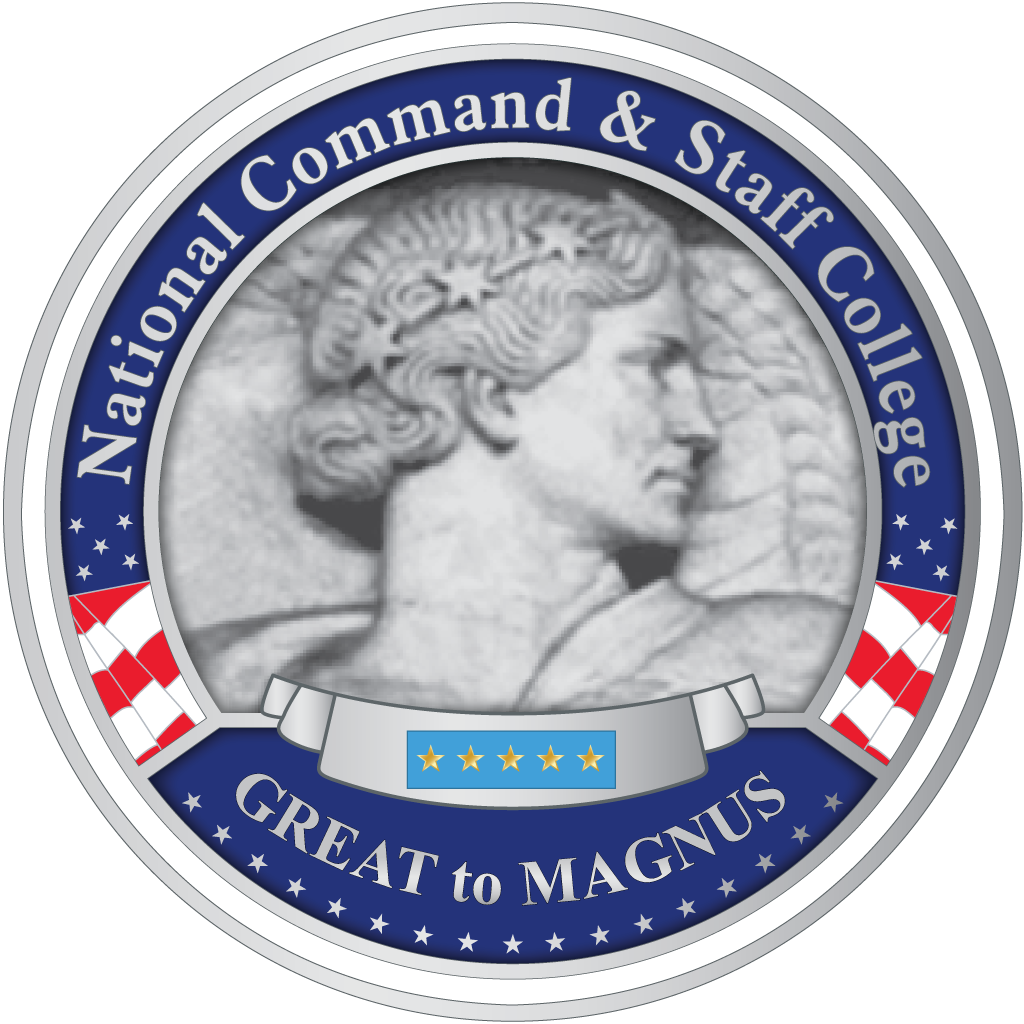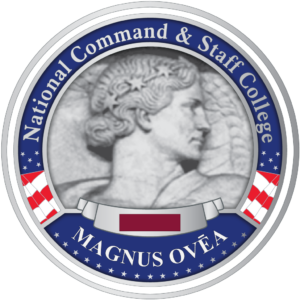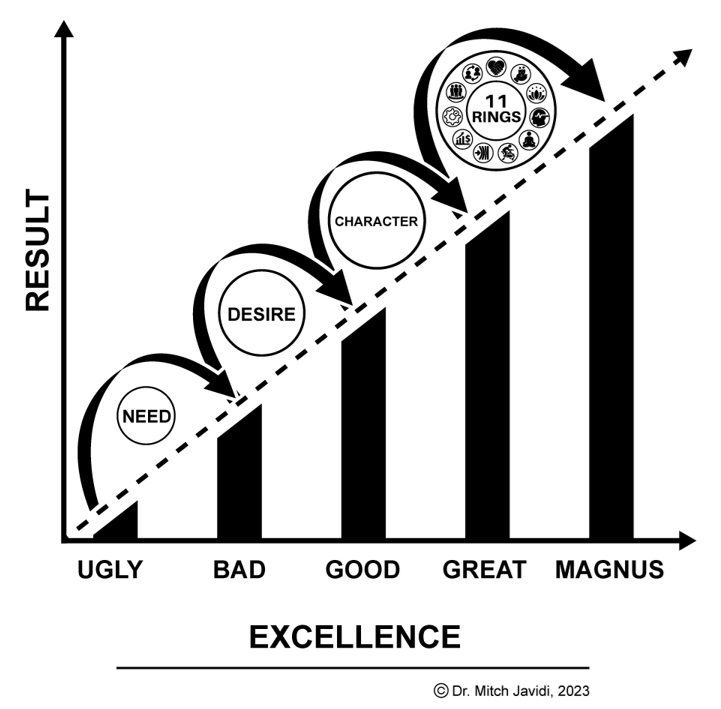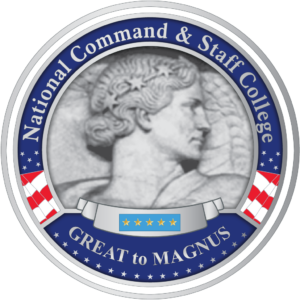About Us

At the heart of every organization lies its most valuable asset: its people. Yet, the true power of these individuals emerges when they are equipped to excel in the face of volatility. In a world where responses to challenging situations can make or break an organization, the significance of every person being physically, mentally, and emotionally prepared cannot be overstated. An organization’s vulnerability can hinge on everyone’s preparedness to navigate difficulties effectively.
 The National Command and Staff College champions the mantra that every individual is a leader within their sphere of influence. The leadership paradigm has shifted beyond rank and authority; now, every officer embodies leadership. Across the nation, the Military, Sheriff’s Offices, Police Departments, First Responders, and Public Safety training programs embrace our cutting-edge approach to capacity development using evidence-based, practical, habit-building solutions.
The National Command and Staff College champions the mantra that every individual is a leader within their sphere of influence. The leadership paradigm has shifted beyond rank and authority; now, every officer embodies leadership. Across the nation, the Military, Sheriff’s Offices, Police Departments, First Responders, and Public Safety training programs embrace our cutting-edge approach to capacity development using evidence-based, practical, habit-building solutions.
Our strategic purpose is to INSPIRE, EDUCATE, IMPACT, and TRANSCEND.
Our mission: To train and equip your agency to do more than just survive but thrive. By enhancing each individual’s leadership capacity, well-being, morale, productivity, and team-building skills, we aim to reduce risk and liability, crime rates, and citizen complaints through scientific and evidence-based educational and developmental programs. In doing so, we transform agency culture, fostering an environment of respect and achievement. Embracing peak performance, morale, retention, recruitment, culture, and well-being – organizations rise to new heights, and everyone excels.
Everything at our College is built upon the foundation of already tested scientific and evidenced-based theories and practices of adult learning, human behavior, psychology, and performance. What makes our college it innovative and cutting-edge is the inclusion of new ideas of human behavior and neurological research and practices to explain the complexities of human performance and interaction. More specifically, it draws from the MAGNUS OVEA Theory of Dr. Mitch Javidi and 11 RINGS of peak performance.

- RING 1 ~ Building Strong Bonds: The Journey of Relationship Growth
- RING 2 ~ Family Unveiled: Understanding the Dance of Family Dynamics
- RING 3 ~ The Soulful Explorer: Embracing Your Spiritual Being
- RING 4 ~ Mind Over Matter: The Art of Mental Toughness
- RING 5 ~ Mastering the Emotional Symphony: The Key to Emotional Factor
- RING 6 ~ Wellness in Motion: The Pursuit of Physical Health Optimization
- Ring 7 ~ Beyond Bouncing Back: The Essence of Resilience Fitness
- RING 8 ~ Financial Harmony: The Art of Achieving Financial Stability
- RING 9 ~ Occupational Bliss: Finding Fulfillment in Your Work
- RING 10 ~ Leading with Heart: Unveiling Leadership Capabilities
- RING 11 ~ Threads of Connection: The Rich Tapestry of Social Connections
This captivating image, the journey from “GREAT to MAGNUS,” beautifully depicts our approach to building capacities, symbolizing the remarkable progression towards becoming more.

The arrow is a poignant reminder of the continuous forward momentum required to achieve one’s aspirations. It signifies movement and deliberate progress towards achieving MORE in every endeavor. Above the arrow of progress lies a profound message conveyed through the second line: “INSPIRE EDUCATE IMPACT TRANSCEND.”
Each word stands as a pillar of wisdom, embodying the essence of personal growth and societal contribution. These words are not merely strung together but are interconnected, forming the very fabric of the meaningful existence of our developmental journey. The crossed arrows separating these words evoke a sense of harmony and unity. They remind us that true greatness is not attained in isolation but through collaboration, understanding, and mutual respect. These arrows symbolize the interconnectedness of our goals and the importance of cooperation in our collective journey through the 11 RINGS.
Certified and Accredited Leadership Education Resources
 The American Council on Education‘s College Credit Recommendation Service accredits education programs.
The American Council on Education‘s College Credit Recommendation Service accredits education programs.
- Emerging Leadership Program (Undergraduate level)
- Leadership and Command Staff Program (Graduate level)
Minnesota* – 183 hours POST approved. Can be used to fulfill all 16 hours per year or 48 hours of MN POST training required every 3 years.
Nevada* – Can use all courses to fulfill 12 hours of Annual Continuing Education.
Oklahoma* – Can be used to fulfill the 40 hours of Oklahoma CLEET annual accredited training requirements.
South Carolina* – Can be used to fulfill the 40 hours of South Carolina Criminal Justice Academy in-service training required every 3 years.
* We do not publish POST numbers
- Alabama– 6 hours of annual training with agency approval.
- Arizona– 8 hours of agency-sponsored training ~ see Policy statement regarding the issuance of AZ POST Continuing Education Credits for vendors.
- Arkansas– 16 hours of annual CLEST training with agency approval.
- California – Participants will receive 16 hours of Continuing Professional Training (CPT) credit per POST regulation 1060. Review approval and instructions here.
- Florida– 36 of the 40 hours of retraining requirements with agency approval.
- Iowa– 12 hours per year or 36 hours per every 3 years of in-service requirements with agency approval.
- Kansas– 20 of the required 40 hours of annual in-service training with agency approval.
- Louisiana– 20 hours of annual in-service training with agency approval.
- Maine– 18 hours of elective training required every 2 years with Department level approval.
- Massachusetts– Non-mandated training hours required annually by the Municipal Police Training Committee.
- Mississippi– 8 of the required 24 hours of annual in-service training with agency approval.
- Montana– Courses that are 2 hours in length or more can be submitted for course credit using the MT POST form for Out-of-State and Other Training. Classes that are less than 2 hours in length can be used as in-service training hours to fulfill the POST requirement of 20 hours of training required every 2 years for each officer. Each agency is required to maintain a record of in-service training hours available for possible future audit by POST.
- Nebraska– 10 of the required 20 hours of annual continuing education with agency approval.
- New Hampshire– All 8 hours of required annual on-going training with agency approval.
- North Carolina– The North Carolina Criminal Justice Education and Training Standards Commission will consider our certificates for credit toward the North Carolina Professional Law Enforcement Certificate Program. Training Coordinators will be responsible for the proper documentation of training submitted for credit. Please see Award for the Professional Law Enforcement Certificate, Form-F6.
- Ohio– OPOTA will review and provide written approval for a proposed training course, where appropriate (up to 20 hours) based on a request by an agency administrator.
- Oregon– 84 hours of Police Maintenance Training every 3 years with Head of agency approval.
- South Dakota– 40 hours of required continuing education credits every 2 years with agency approval.
- Texas– Can be used to complete the 40 hours of TCOLE annual continuing education requirements with agency approval.
- Utah– 40 hours of annual in-service training with agency approval.
- Vermont– 25 hours of annual training requirements with agency approval.
- Virginia– Can be used with regional training Academy level approval.
- Washington– All 24 hours of annual training requirements.
- West Virginia– 4 of the 16 online hours for in-service training with agency approval.
- Wisconsin– 8 of the 24 hours of annual training requirements with agency approval.


